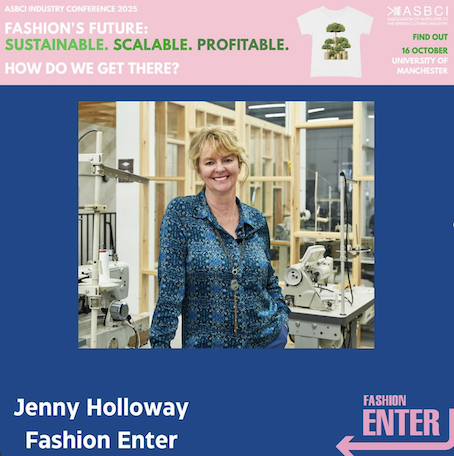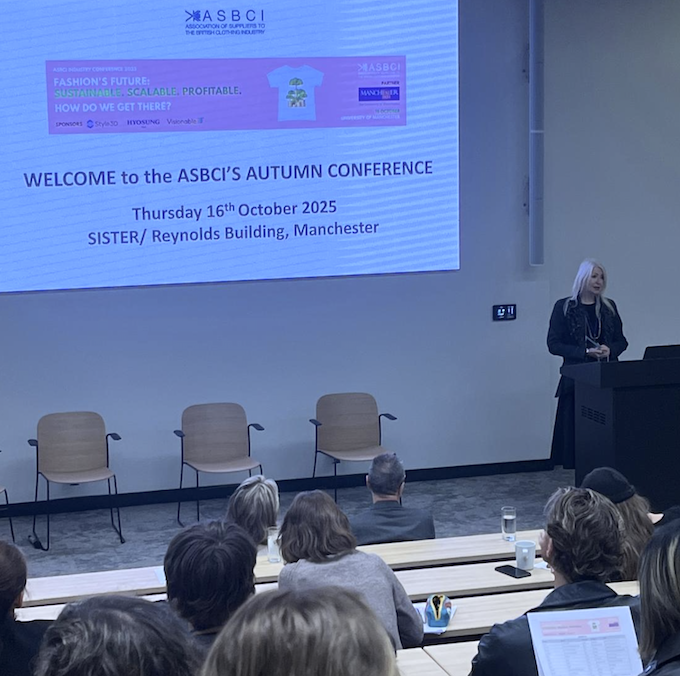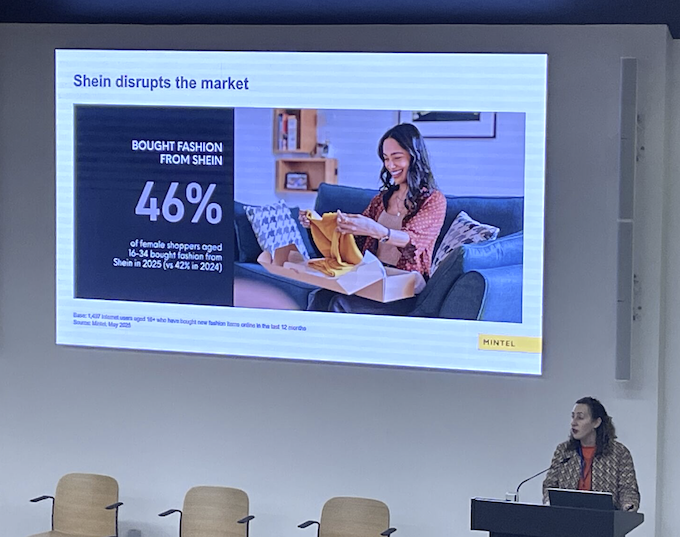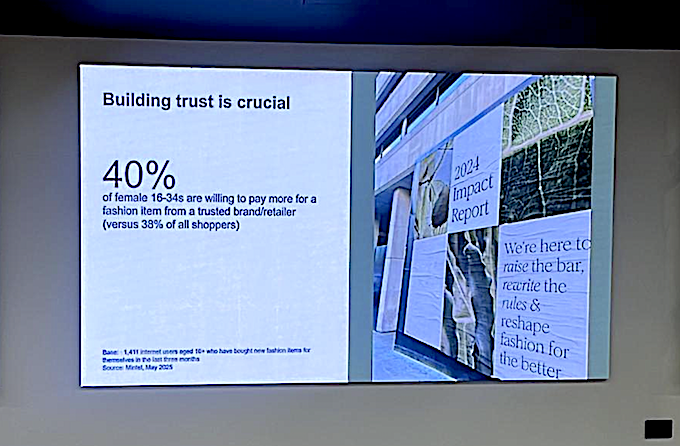From Buzzword to Business Model: Industry Gets Real at ASBCI Industry Conference 2025

17-10-2025
Transformation, trust and tangible action take centre stage in Manchester

In an industry grappling with unprecedented complexity from global instability and cost-of-living crises to regulatory change and climate accountability, the 2025 ASBCI Industry Conference, held on 16th October at the University of Manchester, made one message clear: transformation is no longer optional. It’s overdue.
Under the theme “Getting Real About Industry Transformation”, the conference brought together leading voices across fashion, manufacturing, retail, and academia to interrogate outdated systems, challenge greenwashing, and spotlight practical solutions for a sustainable, scalable future.
Changing Consumers, Shifting Standards
Tamara Sender Ceron of Mintel opened the day with a deep dive into the ethical and sustainability dimensions shaping modern consumer culture. Amid rising scrutiny of fast fashion giants like Shein which reportedly launches 1,000 new products daily, consumers, particularly Gen Z, are growing mistrustful of vague sustainability claims.
- 64% of 16–34-year-olds now consider resale value before buying new.
- 62% have purchased from platforms like Vinted, though some say the second-hand space is becoming saturated.
- 40% of young women are willing to pay more for a trusted brand.
Consumers are still looking for value but now expect it to come with longevity, ethics, and purpose. “Conscience is now the third key factor in consumer behaviour,” Sender Ceron noted. “And it’s on track to become the number one driver of purchase decisions.”

Trust, Transparency, and Tech
The industry is facing a growing “say-do gap” the disconnect between what brands claim and what they deliver. As ASOS, Boohoo, and others come under government review for greenwashing, trust has become a currency as important as price.
This was underscored by digital innovators offering traceability tools that help consumers verify sustainability claims in real-time. Nobody’s Child, one of the UK’s fastest-growing brands, is already leveraging this tech to build consumer trust and transparency.
In a brand case study, Next’s Lysette Kuwaki shared how their digital product development transformation is reshaping workflows and timelines, while Alvanon and Represent explored how body data and avatars are being used to scale fit and reduce waste.

Manufacturing for a Smarter, Circular Future
The fireside chat between FashionCapital/Fashion-Enter Ltd CEO, Jenny Holloway and Suzanne Ellingham, Sourcing Director at Hyve Group, pulled no punches.
“The UK has the skills,” said Holloway. “What we don’t have is the orders, or commitment from brands and retailers.”
Holloway called for greater government procurement of PPE and uniforms to be UK-made, underlining its sustainability benefits:
“No flying fabric from China. Reduced emissions. Less waste. Better cash flow management. You’re protecting British jobs and industry.”
She emphasised that sustainability needs to be more than a buzzword – it should be embedded in local, ethical production and on-demand manufacturing.
From Design to Data: Creativity Meets Impact
In the afternoon, Stuart Trevor, founder of AllSaints, challenged designers to think beyond aesthetics and embrace data-driven design for measurable impact. Presentations from Just Hazaar’s Harriet Noy and Professor Henry Li explored zero-waste platforms, modular garment construction, and the potential of digital product creation (DPC) to reshape production timelines.
A panel on circularity, moderated by Simon Platts, brought perspectives from resale (GreenEarth Cleaning), heritage (Brook Taverner), and tech (Just Hazaar). The consensus? Circular fashion must be convenient, visible, and rewarding with infrastructure to match.
The Role of Legislation and Compliance
As Extended Producer Responsibility (EPR), eco-labelling, and new regulations approach, brands are under pressure to adapt. A second panel, led by Dr Rosy Boardman, featured Intertek, Bombiix, and Segura discussing how compliance is becoming a competitive differentiator and a non-negotiable in future supply chains.
“Consumers believe the burden lies with brands and retailers, not themselves or governments,” one panellist noted.
3D NEXT LVL and the Digital Frontier
The conference followed the third edition of 3D NEXT LVL, hosted the day before by ASBCI, University of Manchester, and Alvanon Europe. The event showcased the latest in AI, 3D design, and digital product creation, with digital “super-users” mapping out how these tools can accelerate transformation across the value chain.
A Closing Call to Action
From resale platforms to repair studios, the message was clear: sustainability isn’t one solution – it’s a system shift. And it’s already happening in every corner of the industry, from M&S’s take-back schemes and Primark’s subsidised repairs to emerging platforms like Just Hazaar making second-hand fashion more accessible and stylish.
But success will hinge on multi-stakeholder collaboration, radical transparency, and an unflinching look at uncomfortable truths including the industry’s long-overlooked reliance on animal products. The closing remarks challenged delegates to reframe sustainability not just as environmental, but ethical, emotional, and economic.























